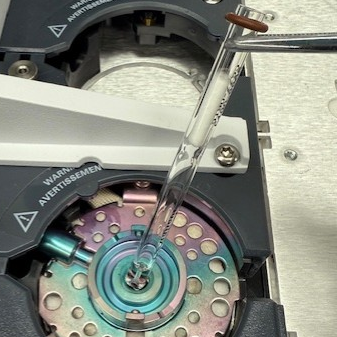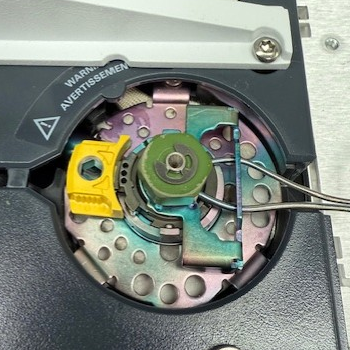Behind the Scenes: Maintaining Precision in Drug Sample Analysis
Ever wondered what happens behind the scenes when you send a drug sample to our lab? Let's pull back the curtain and talk about something that might sound tiny but is actually a big deal: injection port maintenance.
Your Sample's Grand Entrance: The Injection Port
Imagine the injection port as the entry point for your drug sample into the world of chemical analysis. It's like a carefully designed doorway that must be pristine to ensure the sample enters the instrument without contamination.

The Septum: Your Sample's First Threshold
The septum is a small, round seal typically made of silicone or another polymer. Its job is crucial:
- Creates an airtight seal when the sample needle punctures it
- Keeps unwanted air and contaminants out
- Maintains the pressurized environment inside the instrument

Over time the septum degrades. It can:
- Develop micro-tears from repeated needle injections
- Start leaking (and nobody wants a leaky seal, or a soggy bottom)
The Liner: Guiding Your Sample's Journey
The liner is a small glass tube inside the injection port. Think of it as a funnel that:
- Turns your liquid sample into a vapor
- Spreads the sample evenly (no sample left behind!)
- Transfers the sample to the column for separation


Over time the liner gets dirty leading to:
- Poor peak shape in the chromatogram
- Increased potential for contaminants
Why Routine Maintenance Matters
Routine maintenance ensures reliable, precise sample analysis. And changing the septum and liner takes less than an hour!
Our Maintenance Protocol
We recommend changing the septum and liner:
- At least once a week
- Immediately if there is any visual degradation
- During preventative maintenance schedules
The Replacement Process
Our technicians follow a standard process that's as easy as 1, 2, 3:
- Carefully remove the old septum and liner
- Install a new, high-quality septum
- Insert a clean, appropriate liner
Pro tip: This is all happening behind the scenes, so you can focus on the results that keep communities safe.
Ensuring Your Results' Reliability
By maintaining these small but critical components, every drug sample you send receives the most accurate, reliable analysis possible. Every tiny detail matters when you're analyzing substances that could impact people's health and safety.


